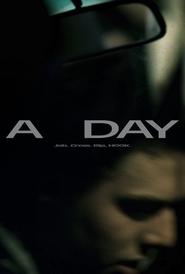A Day: A Riveting Tale of Time, Loss, and Second Chances
A Day is a gripping and emotionally charged thriller that explores the themes of time, loss, and the possibility of second chances. The film follows a father who is trapped in a time loop, reliving the same tragic day over and over again as he desperately tries to save his daughter’s life. With its intricate plot, powerful performances, and exploration of profound themes, A Day is a thought-provoking journey that will keep viewers on the edge of their seats.
The Story
The film centers on Min-chul, a successful surgeon and devoted father, whose life is turned upside down when his young daughter, Eun-jung, is killed in a tragic accident. Overwhelmed by grief and guilt, Min-chul finds himself trapped in a time loop, forced to relive the day of the accident over and over again.
Each time the day resets, Min-chul tries to alter the course of events to prevent the tragedy. However, no matter what he does, the outcome remains the same. As he continues to relive the day, Min-chul begins to uncover hidden truths about the accident and the people around him, leading to a series of shocking revelations.
Themes of Time and Loss
At its core, A Day is a story about time and the ways it can both heal and haunt us. Min-chul’s experience of being trapped in a time loop serves as a metaphor for the way grief can make time feel stagnant, as if the world has stopped moving forward. His repeated attempts to change the past reflect the universal desire to undo our mistakes and protect the ones we love.
The film also explores the profound impact of loss on the human psyche. Min-chul’s grief is palpable, and his journey through the time loop is as much about coming to terms with his daughter’s death as it is about trying to save her. The film suggests that while we cannot change the past, we can find ways to move forward and honor the memories of those we have lost.
The Time Loop Concept
The time loop concept is central to the film’s narrative, and it is executed with precision and creativity. Each repetition of the day brings new insights and challenges, as Min-chul tries different approaches to alter the course of events. The film keeps viewers engaged by gradually revealing new layers of the story, with each loop adding depth to the characters and their motivations.
One of the most compelling aspects of the time loop is the way it forces Min-chul to confront his own flaws and mistakes. As he relives the day, he begins to see how his actions—or inactions—have contributed to the tragedy. This self-awareness is a crucial part of his journey toward redemption.
Complex Characters and Relationships
The heart of A Day lies in its complex characters and their relationships. Min-chul is a deeply flawed but sympathetic protagonist, whose love for his daughter drives every decision he makes. His journey is one of self-discovery, as he learns to confront his own shortcomings and take responsibility for his actions.
The film also explores the relationships between Min-chul and the other characters, including his estranged wife, Soo-jin, and a mysterious woman named Mi-kyung, who seems to have a connection to the time loop. These relationships add emotional depth to the story and highlight the ways in which our actions can impact the lives of others.
Moral Dilemmas and Ethical Questions
A Day raises important moral and ethical questions about the nature of time, fate, and free will. Is it possible to change the past, or are we destined to repeat our mistakes? What are the consequences of trying to alter the course of events, and who bears the responsibility for those consequences?
These questions are woven throughout the film, challenging viewers to consider the implications of Min-chul’s actions and the broader philosophical questions they raise. The film does not offer easy answers, but instead invites viewers to reflect on their own beliefs and values.
Visual and Emotional Impact
The film’s visual style is both stark and atmospheric, with a muted color palette and haunting cinematography that reflect the bleakness of Min-chul’s reality. The use of lighting and camera angles enhances the tension and emotional depth of the story, drawing viewers into Min-chul’s world.
The score, composed of haunting melodies and ambient sounds, adds to the film’s emotional impact. The music mirrors Min-chul’s inner turmoil, creating a powerful connection between the audience and the character.
Lessons from the Film
A Day is a film that resonates on multiple levels. It is a gripping thriller, but also a profound exploration of time, loss, and the human condition. The film reminds us that while we cannot change the past, we can find ways to move forward and honor the memories of those we have lost.
The moral dilemmas faced by Min-chul challenge viewers to reflect on their own values and the choices they would make in similar circumstances. The film suggests that redemption is not about erasing the past, but about finding a way to make amends and move forward.
Finally, A Day underscores the importance of relationships and the bonds that connect us, even in the most dire situations. Min-chul’s journey is a testament to the power of love and the lengths we will go to for the ones we love.


